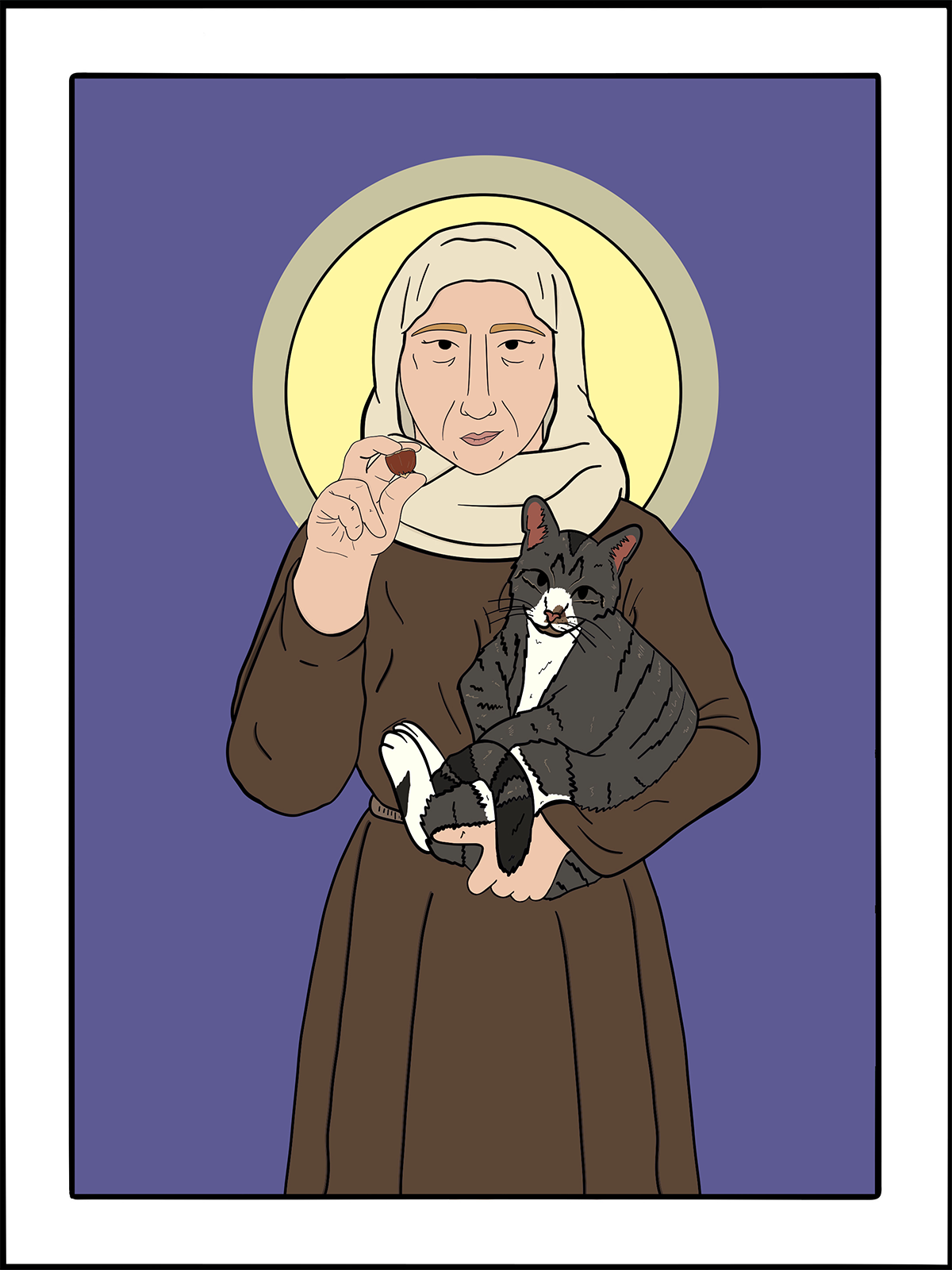
May 8
Julian of Norwich
Mystic and Theologian, 1417
art by Rev. Kirsten Kohr of Uhrichsville, Ohio Triune God, Father and Mother to us all, who showed your servant Julian revelations of your nurturing and sustaining love: Move our hearts, like hers, to seek you above all things, for in giving us yourself you give us all. Amen.
Of Julian’s early life we know little, only the probable date of her birth (1342). Her own writings in her Revelations of Divine Love are concerned only with her visions, or “showings,” that she experienced when she was thirty years old rather than with the details of her biography.
Julian had been gravely ill and was given last rites. Suddenly, on the seventh day, all pain left her, and she had fifteen visions of Christ’s Passion. These brought her great peace and joy. “From that time, I desired oftentimes to learn what was our Lord’s meaning,” she wrote, “and fifteen years after, I was answered in spiritual understanding: ‘Would you learn the Lord’s meaning in this thing? Learn it well. Love was his meaning. Who showed it you? Love. What did he show you? Love. Why did he show it? For Love.’”
Julian had long desired three gifts from God: “the mind of his passion, bodily sickness in youth, and three wounds—of contrition, of compassion, of will-full longing toward God.” Her illness brought her the first two wounds, which then passed from her mind. The third, “will-full longing” (divinely inspired longing), never left her.
She became a recluse, an anchoress, at Norwich soon after her recovery from illness, living in a small dwelling attached to the parish church. Even in her lifetime, she was famed as a mystic and spiritual counselor and was frequently visited by clergy and lay persons, including the mystic Margery Kempe. Kempe says of Julian: “This anchoress was expert in knowledge of our Lord and could give good counsel. I spent much time with her talking of the love of our Lord Jesus Christ.”
Julian understood that God was both Father and Mother to us, and understood Christ as exemplifying this maternal face of God. “Thus Jesus Christ, who does good against evil, is our very Mother. We have our being in him, where the ground of motherhood begins... As truly as God is our Father, so truly is God our Mother.”
Julian’s book is a tender and beautiful exposition of God’s eternal and all-embracing love, showing how his charity toward human beings is exhibited in the Passion. Again and again, Julian referred to Christ as “our courteous Lord.” Many have found strength in the words that the Lord had given her: “I can make all things well; I will make all things well; I shall make all things well; and you can see for yourself that all manner of things shall be well.”
Excerpted directly from “Lesser Feasts and Fasts 2022,” p. 222-223.
Lessons and PsalmHebrews 10:19-24
Psalm 27:1-9
John 4:21-26
Preface of the Epiphany

